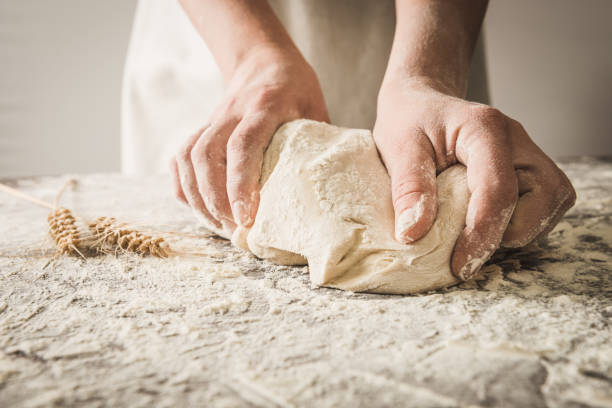Can you freeze flour? For many people, storing flour in the freezer is an effective way to preserve flour quality and extend its shelf life. If you want to become one of them, read on!
Flour is a staple in the pantry of many households. All-purpose flour is still the first choice for many homemakers, but specialty flours such as gluten-free whole grain, bread and cake flours are growing in popularity. Some of these flours have a shorter shelf life than all-purpose flour and will go rancid within a few months. Another concern for many households, especially in warmer climates, is the possibility of bugs infesting the flour.
Can you freeze flour?
All types of flour can be stored in the freezer. Normally, all-purpose flour will keep well on the shelf for up to 2 years after grinding, unopened. The packaging should have a best before date.
Once opened, all-purpose flour should be used within about a year. Whole wheat and special flours usually have a shorter shelf life, which can be up to a few months if stored properly. The less processed flours, such as whole wheat, contain more unsaturated oils that can go rancid quickly.
All flours should be stored in clean, airtight containers in a cool, dry place. Storing flour in the fridge or freezer can extend the product’s shelf life by up to about a year. Freezer storage is a good option, especially for specialty flours, which are more expensive and sometimes used less frequently. Below is a step-by-step guide on how to freeze flour:
How to freeze flour
Freezing flour kills any organisms or eggs that may be in the product. Freezing periods of between two weeks and six months are often recommended in warmer climates where the bugs are most likely to hatch and infest the flour. Freezing the flour also protects it from bugs that might invade the flour if it’s stored in a cupboard. If pests are a problem in your area, storing flour and other dry goods in the freezer can help prevent a pest infestation.
Before flour is frozen, it should be tightly wrapped in a moisture-proof product, such as plastic freezer bags. Flour should never be frozen in its original paper wrapper unless special care is taken not to get the paper wet. Moisture causes flour to spoil.
Read Also: Can you freeze cooked rice?
An airtight container should be used for optimal storage. Flour can be frozen in large or small batches depending on your needs. Because flour contains little to no moisture, it doesn’t harden in the freezer, making it easy to take small amounts out of a larger bag. Freezing does not affect the taste or texture of the flour.
How do you thaw frozen flour?
In general, after the flour is removed from the freezer, it should be brought to room temperature before use. Not bringing it to room temperature can affect the texture of your food.
For example, using flour that is too cold can result in sticky bread dough that is not suitable for kneading. This in turn would require more flour, affecting the final taste and texture of the resulting bread. However, some cooks like to use chilled flour for pasty products such as pie crust and say it results in a flakier texture.
Flour can still spoil in the freezer and you should check your flour for freshness before using it. A sour or rancid smell is a sign that your flour is no longer good to use. If the texture, smell, or taste doesn’t seem right, the flour should be discarded.
summary
When it comes to freezing flour, the whole process is surprisingly quick and straightforward. But as long as you know the right steps on how to freeze flour, you can extend the shelf life of this cookware! So start freezing your excess flour to avoid wastage.
